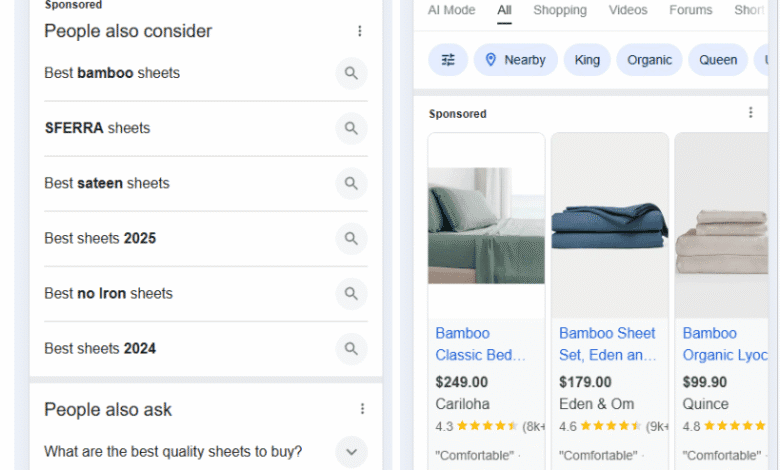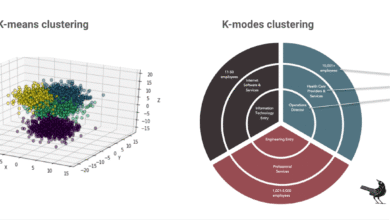Google’s ‘People Also Consider’ Ads Spark Privacy Concerns

▼ Summary
– Google’s “People Also Consider” feature blends organic and sponsored content, creating a cycle of commercial search results that may confuse users and challenge traditional advertising models.
– The feature generates new sponsored search result pages when users click on “Sponsored” links, raising concerns about user experience and advertising transparency.
– Unlike traditional Google Ads, these sponsored suggestions do not charge advertisers per click, as they direct users to commercial search queries rather than representing standard paid ads.
– Marketing experts question how these recommendations are generated, how businesses can influence their appearance, and what user data informs these commercial loops.
– Privacy advocates worry about user consent and data usage, as the feature’s lack of transparency could fail to meet expected standards for major platforms..
Google’s latest search experiment has raised eyebrows among digital marketers and privacy advocates alike, with a new “People Also Consider” feature that creates an endless loop of sponsored search results. The controversial format appears to blend organic and paid content in ways that challenge traditional advertising models while potentially confusing users.
The feature first caught attention when SEO specialist Glenn Gabe shared screenshots showing how clicking a “Sponsored” link generates a fresh search results page. This new page contains another sponsored “People Also Consider” box, creating what observers describe as a self-perpetuating cycle of commercial search results. Industry professionals quickly noted the potential implications for both user experience and advertising transparency.
What makes this development particularly noteworthy is how it differs from conventional paid placements. Unlike standard Google Ads, these sponsored suggestions don’t charge advertisers per click, according to Google’s official statement. The company’s Ads Liaison clarified that the “Sponsored” label appears because the links direct users to commercial search queries, not because they represent traditional paid advertisements.
Marketing experts have raised several critical questions about the feature’s implementation:
- How are these recommendations generated if not through standard ad campaigns?
- Can businesses track or influence their appearance in these suggestion boxes?
- What user data informs these seemingly endless commercial search loops?
The timing of this experiment coincides with broader concerns about Google’s increasingly commercialized search experience. As the platform integrates more AI-generated content and blended ad formats, some worry these changes prioritize monetization over clarity. The recursive nature of these sponsored suggestions could potentially trap users in commercial search loops without clear exit points.
For digital marketers, the implications are significant. Traditional performance metrics may not capture these interactions, potentially skewing campaign analytics. The blurred distinction between organic and paid content could also impact how users perceive search results, possibly affecting click-through rates and conversion tracking.
Privacy advocates note the feature raises additional concerns about user consent and data usage. Without clear disclosure about what triggers these commercial search loops or how user behavior influences them, some question whether the format meets transparency standards expected from major platforms.
As Google continues testing this format, the digital marketing community will be watching closely to understand its full impact on advertising strategies, user experience, and the evolving definition of “organic” search results in an increasingly commercialized search environment.
(Source: Search Engine Land)






